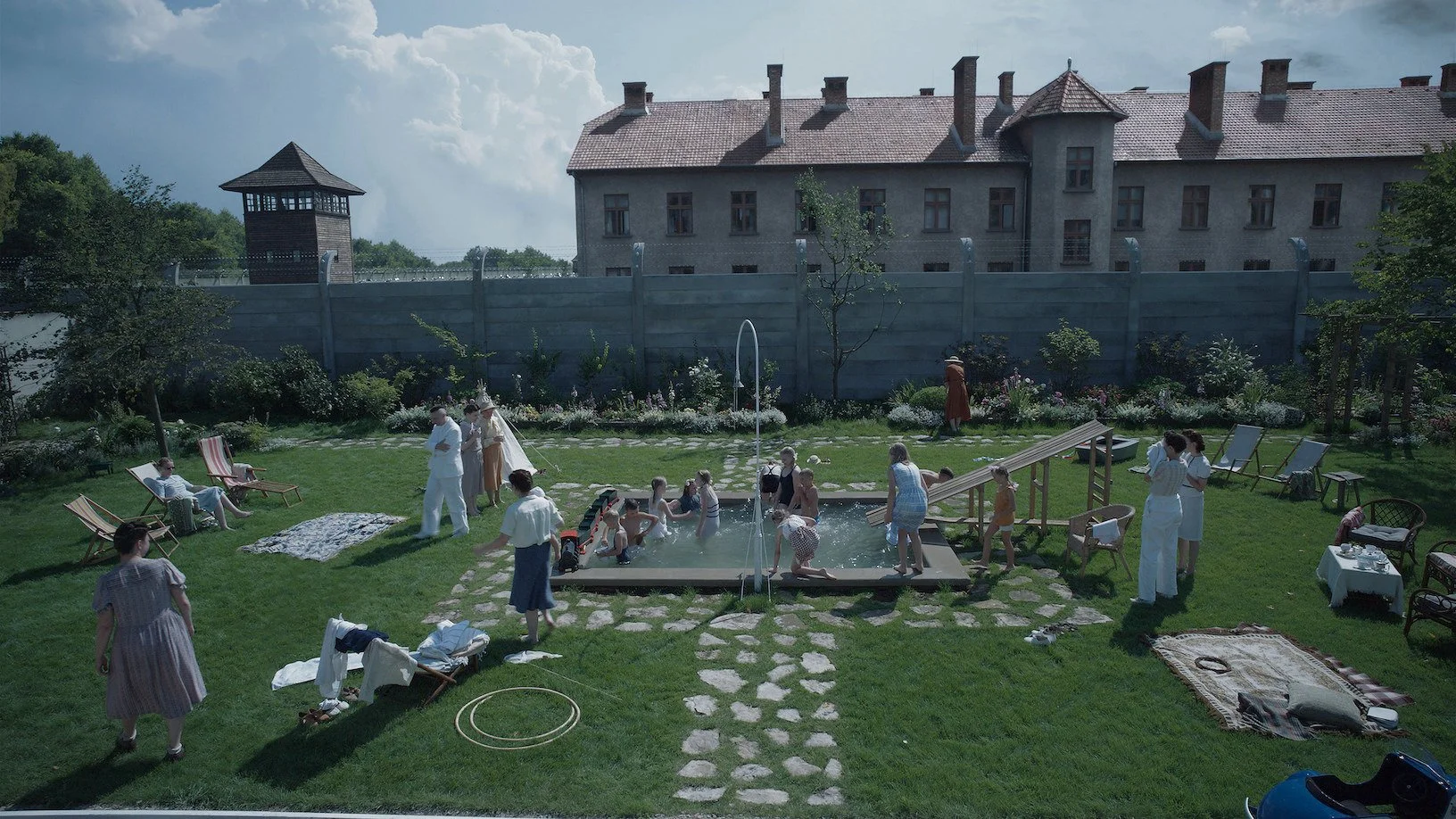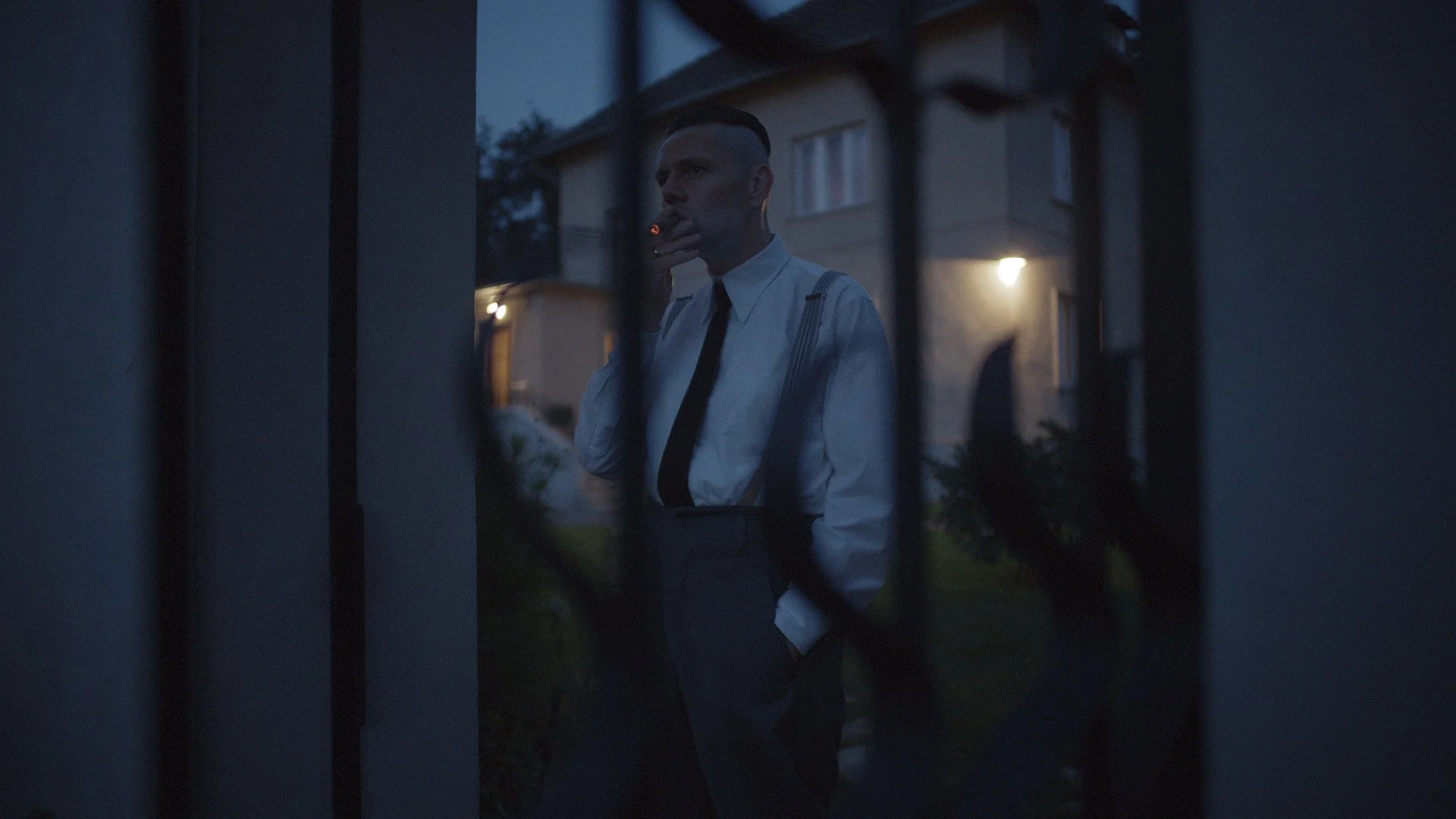In the ‘Zone’
Jonathan Glazer’s Holocaust drama is as blandly chilling as it is sadly relevant.
The Zone of INterest
Director: Jonathan Glazer • Writer: Jonathan Glazer, based on the book by Martin Amis
Starring: Sandra Hüller, Christian Friedel, Martyna Poznanski
UK / USA / Poland • 1hr 45mins
Opens Hong Kong February 22 • IIA
Grade: A
It’s unlikely that philosopher Hannah Arendt could have imaged how valid a concept “the banality of evil” would remain in the 2020s when she coined the phrase in the 1960s to describe Holocaust architect Adolf Eichmann. But then again it’s hard to imagine how one of the very few criticisms you can level at British director Jonathan Glazer’s nearly perfect BAFTA winner and Oscar nominee The Zone of Interest is that it’s too esoteric, too abstract, for the shockingly enormous number of numbnuts out there who 1) don’t know The Holocaust happened or 2) don’t believe The Holocaust happened. Even as attempted genocides keep on coming.
Loosely based on Martin Amis’s novel, Glazer makes Amis’s Rudolf Höss-inspired character into actual Rudolf Höss (played with big mediocre white man energy by Christian Friedel), and crafts what in any other circumstance would be a domestic drama. In Zone, German SS officer Höss lives and works in the zone of interest, about 6,000 hectares around the Auschwitz death camp, with his wife Hedwig (Sandra Hüller, tremendous again following Anatomy of a Fall) and their five kids. They picnic beside the lake, Hedwig gardens in the sprawling yard behind their idyllic home, their dog barks with delight. Höss is a big shot, so Hedwig entertains other officers’ wives during the day. Höss reads his children bedtime stories. It’s the bucolic life the Hösses always wanted.
This bucolic life, however, is right beside Auschwitz, and a high wall with barbed wire looms over the garden. Also looming are frequent spurts of gunfire and shouts, the grind of arriving trains, gas chambers and ovens, belching chimneys, the falling ash of human remains and the sound of other dogs whose barking isn’t so delightful. That the Hösses accept their space and their role within it is probably what Arendt was talking about.
Glazer has a small but potent filmography, and he’s best known for putting a unique spin on genres: the crime thriller in Sexy Beast, the ghost romance in the hit-and-miss Birth and science fiction in Under the Skin. It’s difficult to put a cheap genre label on a film about The Holocaust, but Glazer’s rigidly structured, icy examination of one of the darkest stretches in human history is equally, well, unique. Glazer ditches the heightened button-pushing of Schindler’s List and the numbing information dissemination of Shoah for a formal experiment that makes the stark, hideous truth of the so-called Final Solution that much more vivid. The Zone of Interest lives and dies by its sound, and the sound editing by Johnnie Burn (Nope, Poor Things), mix by Tarn Willers and score by Mica Levi is a very carefully constructed, discordant tapestry that makes cinematographer Łukasz Żal’s (Cold War, Loving Vincent) naturally lit, meticulously still compositions ripe for discovery. You have no choice but to watch the ugliness unfold within the frame. It’s a masterful AV combination that’s precise in how disturbing it is.
Hedwig couldn’t be more thrilled that Rudolf’s prominent position has allowed her to make her perfect home. Her wilful obliviousness to what’s happening right next door is more about refusing to be inconvenienced than guilt. The way she and her Nazi housewife pals patently ignore her terrifed staff and what is likely a disgusting stench in the air is the tip of the denial iceberg, along with the dull monotony of weeding the garden, swimming in a river teeming with bones, and locking up the house at night – like so many of us do. Even Hedwig’s casually anti-Semitic mother (Imogen Kogge) is horrified by the flames coming from the crematorium. Things take a turn when Rudolf gets a promotion to work near Berlin, to bring his genius to Operation Höss. It means giving up the house, and Hedwig isn’t having it.
The Zone of Interest is a rightfully uncomfortable film, but a gorgeously constructed one, and Glazer doesn’t let anyone off the hook, on screen or off. The idea of just how easily atrocities can be normalised is never lost and the film forces us as viewers to ask ourselves where we draw our lines, and if we would “just follow orders” as the excuse goes. When the Nazi brass gets together to discuss the next phase of extermination they may as well be discussing the best way to move tank parts to the front – and that attitude applies to nearly everyone in Höss’s sphere. There’s a cool grey veneer to Żal’s pictures that doubles down on how actively horrific Hedwig and Rudolf are that is rarely lifted, with the exception of a cleaning crew prepping the Auschwitz-Birkenau State Museum to open for the day. There’s a mesmerising quality to Zone as well, much of that carried by Friedel’s unassuming placidity (except for when he’s being a philandering hypocrite) and Hüller’s full-bodied turn as Hedwig. It’s an imperious performance of misplaced entitlement and mundane evil – all stomping around and threats to have her housekeeper murdered because she’s in a bad mood – without which the film loses a great deal of its power. And its terror. — DEK



